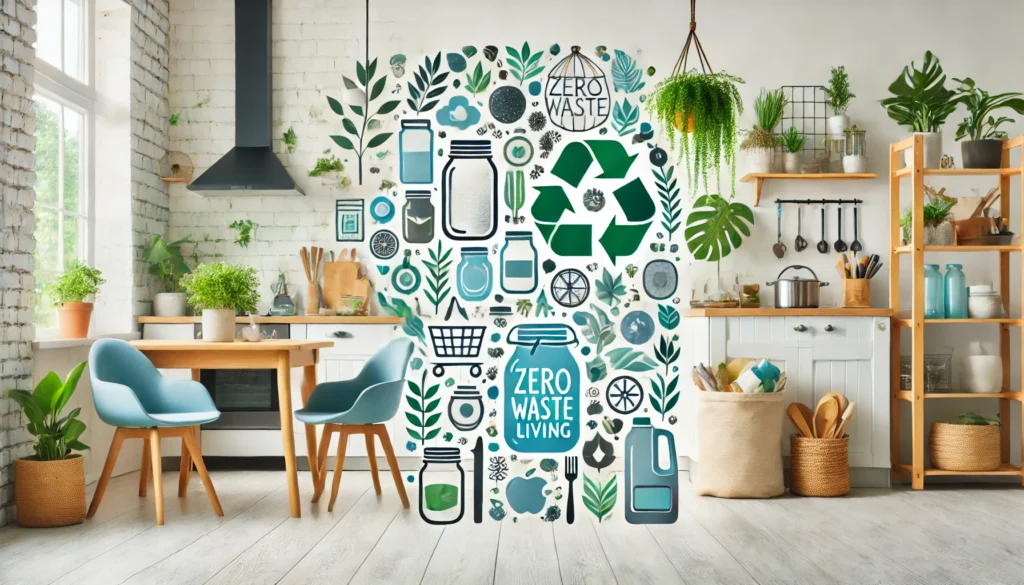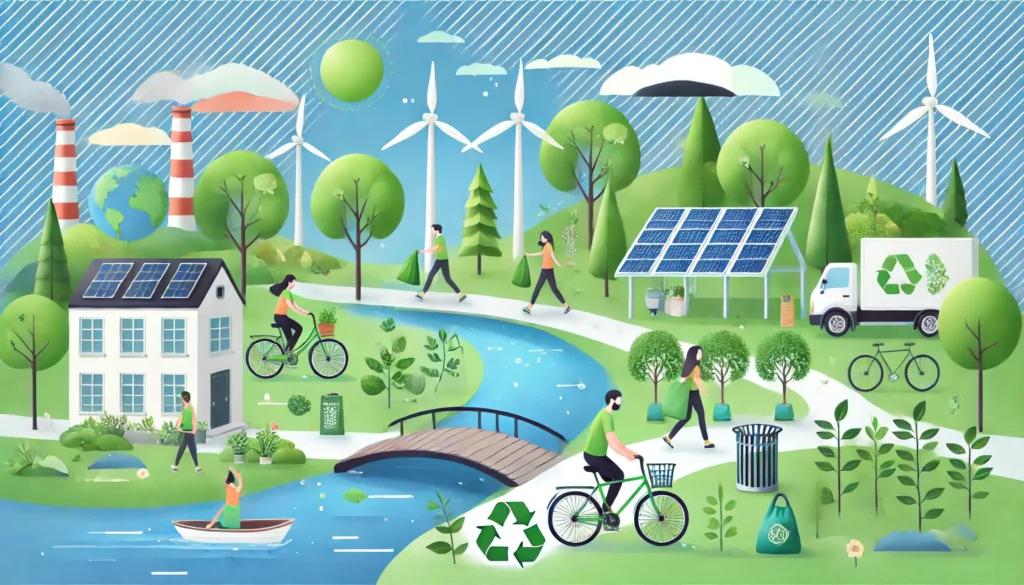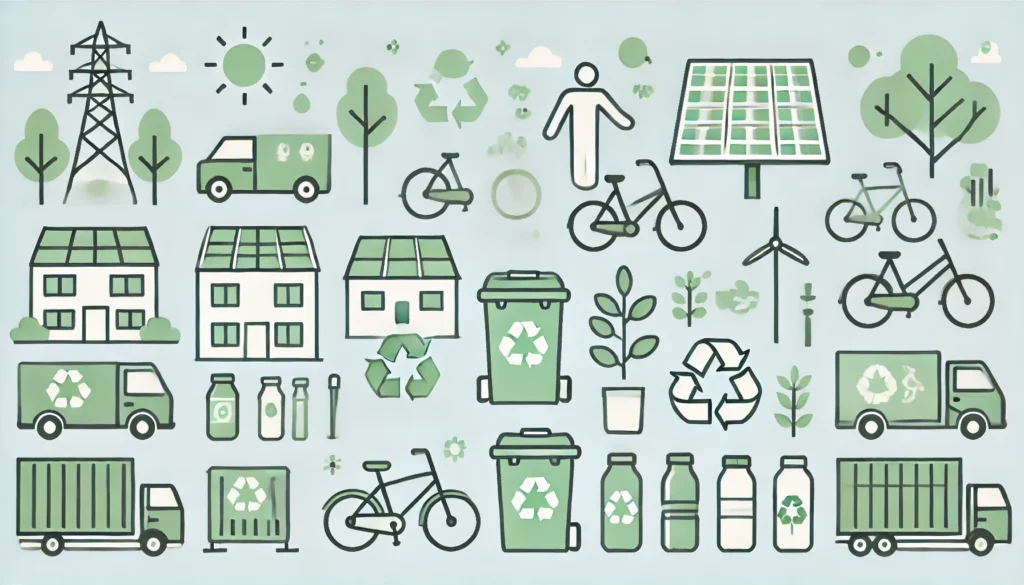As the world faces growing environmental challenges, many people are turning to the zero waste lifestyle as a solution. Zero waste living is about reducing the amount of trash we generate by using reusable, recyclable, or compostable items. The ultimate goal is to send as little waste to landfills as possible.
In this blog post, we will explore what zero waste living means, how you can integrate it into your daily routine, and why it matters for the environment. If you’re looking for ways to reduce your waste footprint, this simple guide will help you get started with small yet impactful changes.
What is Zero Waste Living?
Zero waste living focuses on minimizing waste by making environmentally conscious decisions. Rather than relying on single-use plastics or other disposable products, the zero waste approach promotes reusing, recycling, composting, and thoughtful consumption. It’s about living a life that contributes less waste to landfills and avoids unnecessary consumption.
The five Rs of zero waste living are a great way to guide your efforts:
- Refuse: Say no to products you don’t need.
- Reduce: Cut down on what you do need.
- Reuse: Opt for reusable items over disposables.
- Recycle: Properly recycle materials that can be turned into something new.
- Rot: Compost organic waste to enrich the soil.
1. Say No to Single-Use Plastics
Single-use plastics are one of the biggest culprits of waste in landfills and oceans. Items like plastic bags, straws, and water bottles are used once and discarded, creating a huge waste problem. By simply refusing single-use plastics, you can significantly reduce your waste.
Example:
Instead of using plastic bags at the grocery store, bring your own reusable cloth bags. Carry a stainless steel water bottle to avoid buying plastic ones, and skip the plastic straw when you order a drink.
2. Shop in Bulk to Reduce Packaging Waste
One of the easiest ways to live a zero-waste lifestyle is by buying groceries and household items in bulk. Many stores offer bulk food options like grains, nuts, and spices that you can purchase using your own reusable containers. This eliminates the need for excessive packaging.
Example:
Bring your own glass jars or cloth bags to fill up with products like oats or rice from the bulk section. This reduces the amount of plastic packaging that typically comes with pre-packaged items.
3. Compost Your Food Scraps
Organic waste, like food scraps, should never end up in a landfill. By composting, you can turn this waste into nutrient-rich soil that can be used for gardening. Composting not only reduces waste but also cuts down on methane emissions that come from organic material in landfills.
Example:
Set up a simple compost bin in your kitchen for fruit peels, coffee grounds, and vegetable scraps. If you don’t have a yard, look into community composting programs.
4. Use Reusable Alternatives for Everyday Items
Making small switches from disposable products to reusable alternatives can greatly reduce waste. Items like plastic wrap, paper towels, and disposable razors can easily be swapped out for more sustainable options.
Example:
Use beeswax wraps instead of plastic wrap for food storage. Swap out disposable paper towels for washable cloth towels, and switch to a safety razor that uses replaceable blades rather than disposable plastic ones.
5. Choose Second-Hand Products
Buying second-hand not only reduces waste but also saves resources. From clothes to furniture, purchasing pre-loved items keeps things out of landfills and supports a more sustainable economy.
Example:
Shop at thrift stores or online second-hand platforms for clothing and furniture. You can also donate or sell your own gently used items rather than throwing them away.
6. Recycle Smartly
Recycling is one of the most accessible ways to reduce waste, but it must be done correctly. Not all materials are recyclable, and improperly recycled items can contaminate the whole batch, sending it to the landfill.
Example:
Make sure to clean out any food containers before recycling them, and be aware of what your local recycling center accepts. Most will take plastic bottles, paper, and glass, but things like plastic bags or greasy pizza boxes are not recyclable.
7. DIY Household Products
Instead of buying household cleaners, which often come in plastic bottles, try making your own using simple ingredients like vinegar, baking soda, and essential oils. DIY cleaners are not only waste-free but also free of harmful chemicals.
Example:
Create an all-purpose cleaner by mixing equal parts water and vinegar in a reusable spray bottle. Add a few drops of essential oil for a pleasant scent.
Why Zero Waste Living Matters
The world is facing a waste crisis, with billions of tons of trash piling up in landfills and oceans each year. Adopting a zero waste lifestyle helps reduce the demand for new resources, cuts greenhouse gas emissions, and protects ecosystems from pollution.
Zero waste living is not about being perfect; it’s about making mindful choices and doing what you can to minimize waste. Every small step counts, and when more people join the movement, the impact becomes larger.
Small Changes, Big Impact
Zero waste living may seem daunting at first, but it’s all about making gradual changes. Start with one or two of the habits mentioned above and build from there. Whether it’s refusing a plastic straw or starting a compost bin, every action makes a difference.
By incorporating these small but impactful changes into your daily routine, you can live a more sustainable, eco-friendly life while helping to protect the planet.
Discover more from Green Ecosystem - Renewable Energy, Agriculture, and Environmental Sustainability
Subscribe to get the latest posts sent to your email.


